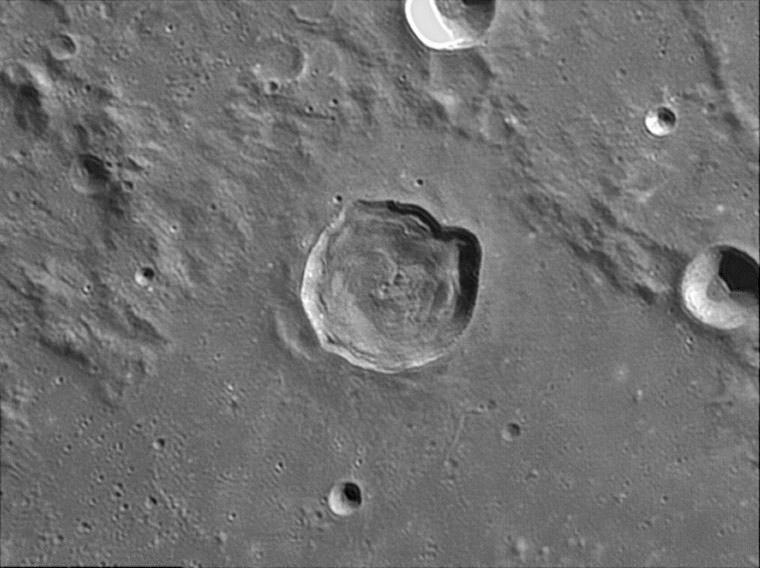Difference between revisions of "July 21, 2018"
| Line 15: | Line 15: | ||
<br /> | <br /> | ||
<strong>Related Links</strong><br /> | <strong>Related Links</strong><br /> | ||
| − | Rükl plate [https://the-moon.us/wiki/ | + | Rükl plate [https://the-moon.us/wiki/Rükl_45 45]<br /> |
Damian's [http://www.damianpeach.com/ website]<br /> | Damian's [http://www.damianpeach.com/ website]<br /> | ||
<br /> | <br /> | ||
Revision as of 19:45, 18 August 2018
A Little Bit About a Normal Crater
Originally published April 30, 2009

image by Damian Peach
When I first saw this picture I didn't recognize the crater - and I bet you don't either. But it is right in plain view near the middle of the Moon as we see it. And until today it hasn't been an LPOD. The crater is Horrocks, 30 km wide and 3 km deep, within the large crater Hipparchus. Horrocks doesn't have rays any more, and its interior wall is a little rounded. It formed after the Imbrium Basin, but it has been around long enough to be somewhat weathered. Horrocks is a complex crater, meaning that its initial walls collapsed, sliding toward the floor, and leaving a steep scarp near the rim crest. There is only a small flat piece of the floor, the rest being covered with debris from the walls that cover all but a tiny bit of the central peaks that must be there. Two further things need noting. A scallop takes a bite out of the east rim. This is a place, as on the west rim of Plato, where a large rim collapse ate back beyond the original rim. A second rim segment is visible just to the west of Horrocks - this is all that remains of a pre-existing crater that was smashed by the formation of Horrocks.
Chuck Wood
Technical Details
May 25, 2008. 14" telescope.
Related Links
Rükl plate 45
Damian's website
Yesterday's LPOD: Petavian View
Tomorrow's LPOD: The Best Farside Map of the Moon
COMMENTS?
Register, Log in, and join in the comments.



